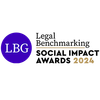FAQs: Copyright
Find out more about the various facets of copyright law with our frequently asked questions. This resource has been created to answer your copyright questions, shedding light on the definition of copyright, the application process, its protective scope, and the penalties associated with infringement.
Frequently Asked Questions
What is copyright?
Copyright is an important component of intellectual property law that grants exclusive rights to the creators of original works of authorship. These works encompass a wide range of media, including such items as literary pieces, dramatic compositions, musical arrangements and artistic creations. This expansive scope extends to various forms of expression, such as novels, films, songs, computer software, and even architectural designs. The owner of a copyright enjoys the exclusive authority to reproduce, distribute, perform, display, and license their work, safeguarding their creative endeavours and fostering a thriving ecosystem of innovation and artistic expression.
How is copyright different from patents or trade marks?
Copyright, patents, and trade marks are all different types of intellectual property, but they protect different things. Copyright protects original works of authorship, literary, artistic, and musical creations. Patents provide legal monopoly rights for inventions or discoveries, ensuring exclusive rights for a specified period. Trade marks play a vital role in safeguarding brand names, logos, and other unique identifiers used in commercial activities, distinguishing the products or services of their owners from those of competitors.
How can I copyright my work?
In most jurisdictions, an original work is automatically protected by copyright from the moment it is created and fixed in a tangible form that is perceptible either directly or with the aid of a machine or device. However, if you wish to bring a lawsuit for infringement of a U.S. work, you will need to have registered your work with the U.S. Copyright Office. It is also possible to register copyright in other countries, such as China and India.
What is a copyright notice and how does it affect my copyright?
A copyright notice is a legally recognised statement that is placed on copies or phonorecords of a work to inform the world about the ownership of copyright. Though not mandatory by law, it serves as a powerful tool to discourage infringement and can potentially impact the amount of damages awarded in an infringement lawsuit. By prominently displaying a copyright notice, creators can assert their rights and establish a clear indication of their ownership, thereby safeguarding their intellectual property from unauthorised use or reproduction.
What is fair use?
Fair use is a legal doctrine that promotes freedom of expression by permitting the unlicensed use of copyright-protected works in certain circumstances. These circumstances may include criticism, comment, news reporting, teaching, scholarship, and research.
How long does copyright protection last?
The length of copyright protection varies from country to country; in the UK, copyright is based on when the work was created and the nature of the authorship. Generally, for works created after January 1, 1978, copyright protection lasts for the lifetime of the author plus an additional 70 years.
What is copyright infringement?
Copyright infringement is the use of works protected by copyright law without permission, infringing certain exclusive rights granted to the copyright holder, such as the right to reproduce, distribute, display, or perform the protected work.
Is it possible to transfer my copyright?
Yes, like any other property, copyright can be transferred or sold. This is often done through a contract or licensing agreement.
What is a copyright license?
A copyright license is a legal agreement granting someone permission to use a work protected by copyright in a specific way. This could be for a specified period of time, within a specific geographic area, or for a particular purpose.
What is the public domain?
The public domain refers to creative materials that are not or are no longer, protected by intellectual property laws such as copyright, trade mark, or patent laws. These materials can be used freely without permission from the original creator.


















